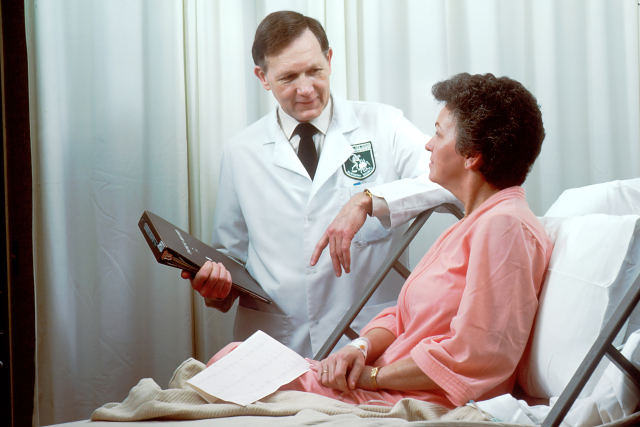Scientists from the Weizmann Institute of Science in Israel and the German Cancer Research Center (DKFZ), together with colleagues from Israel, Germany and the USA, have found that the gut microbiome may modulate the efficacy of CAR-T cellular immunotherapy in patients with B-cell lymphomas. Individualized microbiome information retrieved from patients’ gut microbiomes prior to initiation of CAR-T therapy could accurately predict their subsequent responsiveness to therapy, but only on condition that these patients were not pre-treated with broad spectrum antibiotics.
The National Cancer Institute explains that CAR-T Cell cancer immunotherapy, while not as widely used as immune checkpoint inhibitors, has shown the same ability to eradicate very advanced leukemia and lymphomas and to keep the cancer at bay for many years.
As their name implies, T cells—which help orchestrate the immune response and directly kill cells infected by pathogens—are the backbone of CAR T-cell therapy. Currently available CAR T-cell therapies are customized for each individual patient. They are made by collecting T cells from the patient and re-engineering them in the laboratory to produce proteins on their surface called chimeric antigen receptors, or CARs. The CARs recognize and bind to specific proteins, or antigens, on the surface of cancer cells.
Will you offer us a hand? Every gift, regardless of size, fuels our future.
Your critical contribution enables us to maintain our independence from shareholders or wealthy owners, allowing us to keep up reporting without bias. It means we can continue to make Jewish Business News available to everyone.
You can support us for as little as $1 via PayPal at office@jewishbusinessnews.com.
Thank you.
Despite the excitement around these therapies, they lead to long-term survival in fewer than half of the patients treated. They have also come under criticism for their cost, which, in the case of the most recently approved CAR T-cell therapy, is more than $450,000.
This marks yet another breakthrough made by Israeli scientists in the fight against cancer; even though, the country is best known for its high-tech firms and defense industries. Just last week, researchers from Tel Aviv University identified and characterized a new mechanism that facilitates the formation of brain metastases of breast cancer tumors and found that impairing this mechanism significantly reduced the development of brain metastases in mice. The findings are relevant to patients with brain metastatic disease: High levels of the factor in patient blood could predict metastatic recurrence in the brain and a worse prognosis.
But now the Weizmann Institute scientists found increasing evidence from human studies and preclinical experiments suggests that the gut microbiome may modulate the efficacy of T cell-driven cancer immunotherapies, such as immune checkpoint blockade. Immunotherapy with CD19 chimeric antigen receptor (CAR)-T cell has opened up new treatment options for patients with certain forms of refractory and relapsing B-cell leukemia or lymphomas. But the therapy is hampered by considerable heterogeneity in responses. Complete and long-term remission is only achieved in up to 40% of patients.
Researchers from multiple centers in Germany and the United States, led by Eran Elinav, director of the DKFZ-Weizmann Institute of Science’s Microbiome & Cancer Bridging Division, have found that the gut microbiome may modulate the efficacy of CD19 CAR-T cell immunotherapy in patients with B-cell leukemias and lymphomas.
This largest prospective study of its kind has followed 172 lymphoma patients previously failing multiple rounds of chemotherapy, from before CAR-T immunotherapy initiation until two years later. Interestingly, 20% of patients receiving a subset of broad-spectrum (“high-risk”) antibiotics, such as meropenem, piperacillin–tazobactam or cefepime, featured an altered clinical response to subsequent CAR-T therapy, compared to patients who received other antibiotics and patients who were not treated with antibiotics prior to therapy.However, this antibiotics-associated reduced CAR-T therapy response was not driven by the effects of the antibiotics themselves, but rather by the fact that patients treated with “high-risk” antibiotics before initiation of CAR-T therapy tended to have higher pre-therapy tumor burden and systemic inflammation as compared to non-antibiotics-treated patients. These adverse pre-treatment conditions rendered subsequent CAR-T therapy less effective.
The researchers identified several key microbiome features enabling the prediction of CAR-T efficacy, including species of Bacteroides, Ruminococcus, Eubacterium, and Akkermansia. Of these, Akkermansia was also associated with higher baseline peripheral T cell levels in these patients.
In all, the study reveals strong associations between microbiomes and CAR-T outcomes, which first author Christoph Stein-Thoeringer (now professor at the University Medical Center Tübingen, Germany) believes may contribute to the development of microbiome-based predictions of CAR-T cell immunotherapy outcomes. Additionally, findings from this study may make it possible to better understand the differential CAR-T cell activation, persistence, and clinical efficacy in different patients. The study also highlights the need for further investigation into the causal nature of the relationship between the gut microbiome and cancer immunotherapy outcomes. “These exciting findings”, states Prof. Elinav, “exemplify the potential of our unique microbiome signatures tobe harnessed as possible markers of disease and treatment responsiveness in multiple human disorders, including cancer. With further research we hope that microbiome-based diagnostics and therapies will be incorporated into the precision oncology field”.




